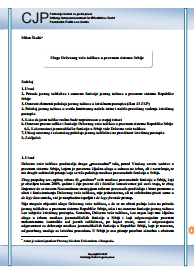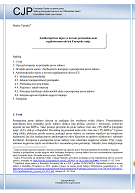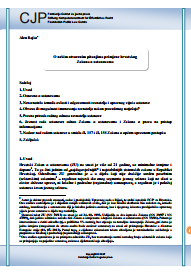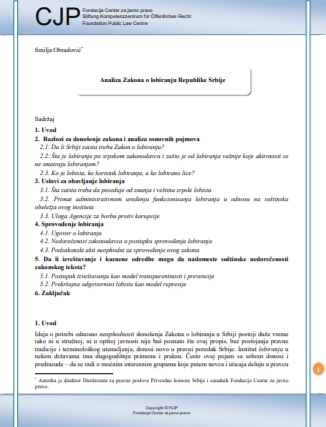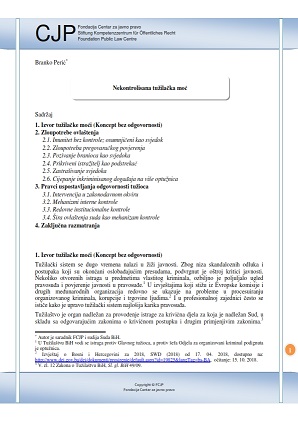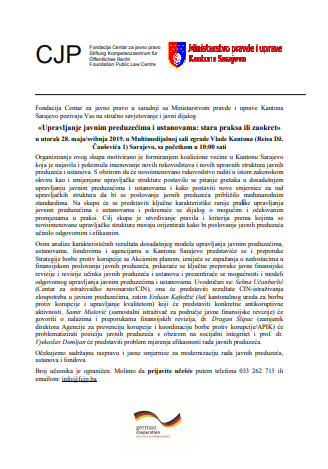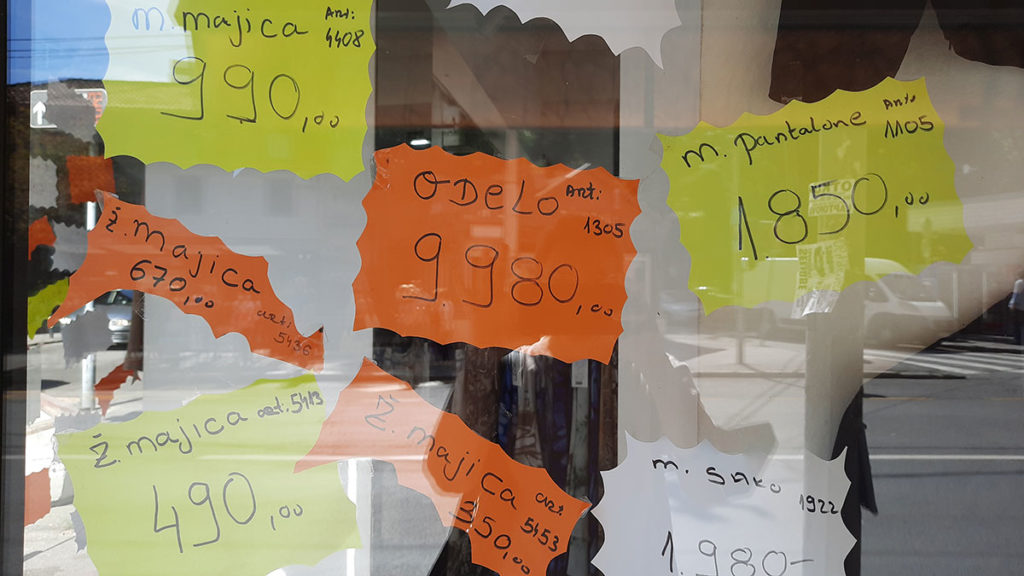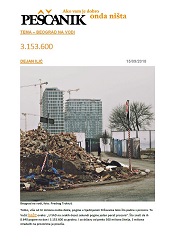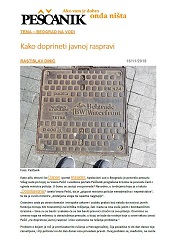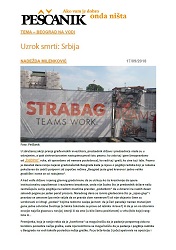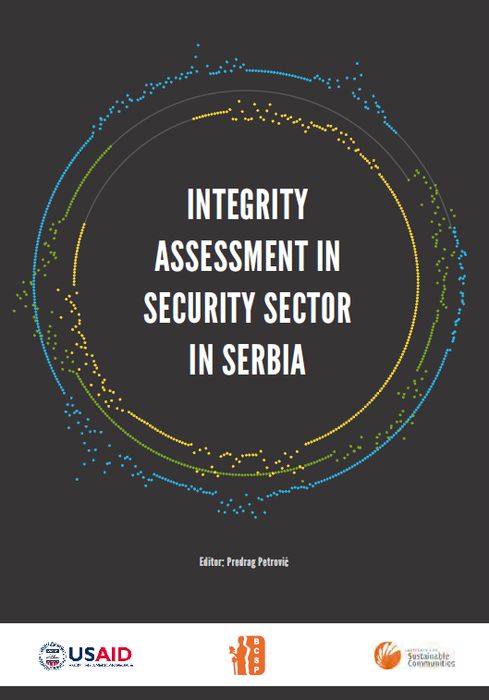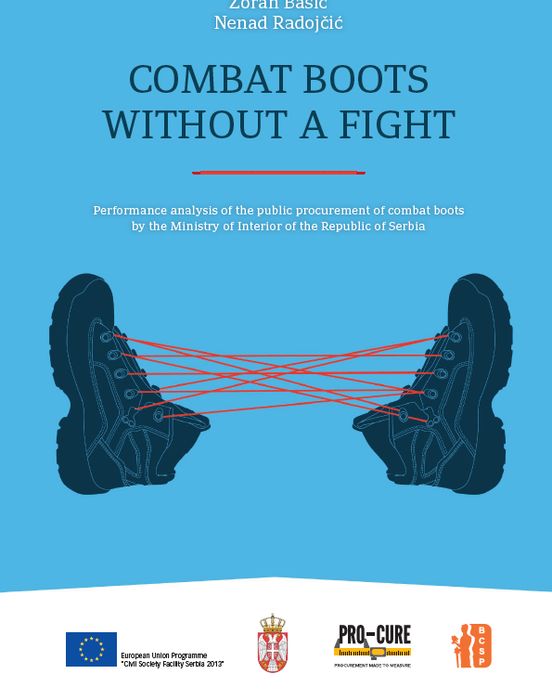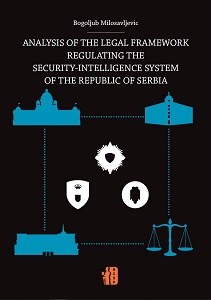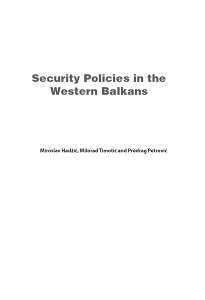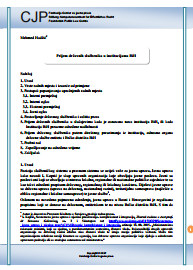
Prijem državnih službenika u institucijama BiH
Oslonom na način popunjavanja upražnjenih radnih mjesta državnih službenika, službenički sistem u institucijama BiH se može svrstati u kombinovane službeničke sisteme gdje je popunjavanje putem javnog oglasa uslovljeno prethodno iscrpljenim mogućnostima internog i eksternog premještaja te raspisivanjem internog oglasa. Ako se upražnjeno radno mjesto popunjava oglašavanjem ono može biti putem internog ili javnog oglasa. Interno oglašavanje predstavlja proceduru za popunjavanje upražnjenog mjesta napredovanjem državnih službenika koji su već zaposleni u instituciji ili u slučaju kad postoje državni službenici u toj instituciji koji su proglašeni prekobrojnim. U ostalim slučajevima se raspisuje javni oglas. U slučajevima i jednog i drugog oglašavanja prijem državnih službenika se zasniva na profesionalnoj sposobnosti. Ako se izuzme potreba za posjedovanjem opštih i posebnih uslova za rad na pojedinom radnom mjestu, i poštivanjem izložene procedure prijema u državnu službu najveća odgovornost za izbor napogodnijeg kandidata leži na komisiji za izbor. Ova komisija može sadržavati tri ili pet članova, koje predlaže institucija ili institucija i Agencija u Zakonom predviđenom omjeru, ovisno o tome da li je u pitanju interni ili javni oglas. Ocjena prilikom provjere znanja kandidata data od strane svakog člana komisije se ne može preispitivati ni u postupku po žalbi pred Odborom državne službe za žalbe ni u upravnom sporu pred Sudom BiH. Ovo je osnovni razlog da izbor najpovoljnijeg kandidata zavisi isključivo od stručnih kompetencija i poštivanja etičkih i moralnih principa svakog člana komisije ponaosob, ali i komisije u cjelini. Izuzetak, ali samo u proceduralnom smislu, predstavlja prijem rukovodećih državnih službenika gdje izbor najboljeg kandidata sa liste uspješnih, opet zavisi od pomenutih kvaliteta rukovodioca institucije koji vrši izbor. Zapošljavanje na temelju profesionalne sposobnosti se u znatnoj mjeri dovodi u pitanje mogućnošću da se poslovi upražnjenog radnog mjesta popunjavaju na određeno vrijeme, od strane osoba koje nemaju status državnog službenika, u nekim slučajevima čak do dvije godine. Ove osobe nužno ne moraju poslove državne službe obavljati lošije, ali status državnog službenika kroz Zakonom utvrđena prava i posebno odgovornosti treba da jamči njihovu maksimalu profesionalnost, objektivnost i transparentnost, što se u njihovom slučaju, možda i neopravdano oslonom na njihove stvarne kompetencije, može dovesti u pitanje. Negativna strana ovakvog zapošljavanja dodatno dobiva na težini u slučajevima pokretanja konkursne procedure, jer ove osobe u startu imaju znatnu prednost zbog boljeg poznavanja ispitne materije i moguće prethodne saradnje sa članovima komisije, što ostale kandidate stavlja u neravnopravan položaj. Popunjavanje putem direktnog preuzimanja državnih službenika iz organa uprave entiteta i Brčko distrikta BiH se može tretirati kao sui generis zbog specifičnog državnog ustrojstva BiH. Uslov za popunjavanje direktnim preuzimanjem jeste sporazum između instutucije BiH i entitetskog organa uprave, odnosno organa uprave Brčko distrikta BiH, te saglasnost samog državnog službenika. Na ovaj način, iako nominalno egzistiraju paralelno i neovisno jedan o drugom, državna služba predstavlja najujednačeniji segment javne(ih) odnosno državne(ih) uprave(a) u BiH. Osnov ovog ujednačavanja se nalazi u Pravilniku Agencije o sličnim radnim mjestima za potrebe direktnog preuzimanja državnih službenika iz entitetskih organa u institucije Bosne i Hercegovine. Mogućnost ove prohodnosti i u jednom i u drugom smjeru stvara pretpostavke da se barem u određenoj mjeri ujednače profesionalni standardi državne službe, ali istovremeno, u skladu sa načelom efikasnosti i ekonomičnosti, uspori povećanje broja državnih službenika, i finansijskih i drugih opterećenja koje ono (povećanje) sa sobom nosi.
More...
